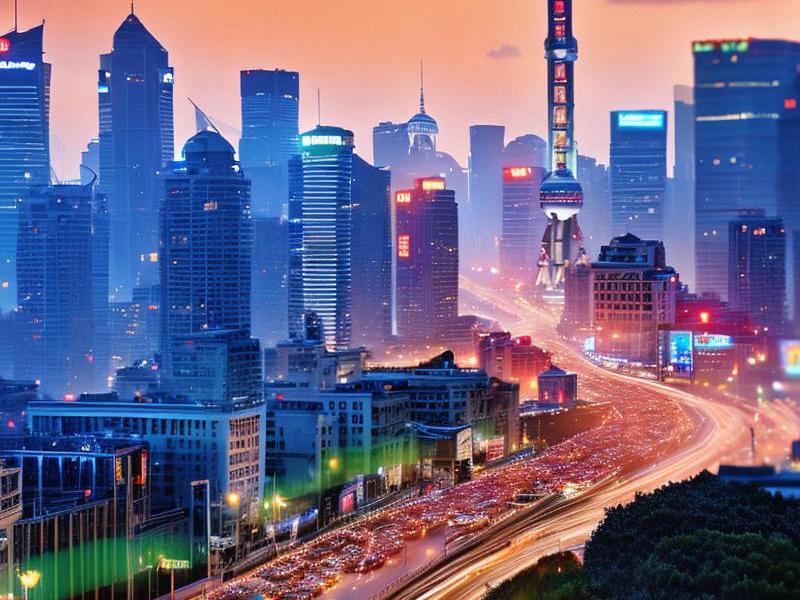Shanghai Insights: An Overview of the Vibrant Metropolis
⏱ 2025-04-30 12:19 🔖 上海龙凤419
📢0℃

Shanghai, often referred to as the "Pearl of the Orient," stands as a testament to China's remarkable transformation over the past few decades. This vibrant metropolis, located on the eastern coast of China, is not only the largest city in the country but also a significant global financial hub. Its skyline, a harmonious blend of historic architecture and cutting-edge skyscrapers, serves as a visual representation of Shanghai's evolution.
The city's rapid urban development has been nothing short of extraordinary. In just a few decades, Shanghai has transformed from a relatively small port city into a sprawling metropolis with a population exceeding 24 million. This growth has been driven by a combination of government initiatives, foreign investment, and the city's strategic location at the mouth of the Yangtze River, which provides access to the vast Chinese hinterland and the global shipping network.
One of the most striking features of Shanghai's urban landscape is its iconic skyline. The Bund, a historic waterfront area, showcases a stunning array of colonial-era buildings that stand in contrast to the futuristic skyscrapers of Lujiazui, the city's financial district. The Oriental Pearl Tower, the Jin Mao Tower, and the Shanghai Tower, the tallest building in China, are just a few examples of the architectural marvels that define Shanghai's modern identity.
Economically, Shanghai is a powerhouse. It is home to the Shanghai Stock Exchange, one of the largest stock exchanges in the world, and hosts numerous multinational corporations and financial institutions. The city's free trade zone, established in 2013, has further solidified its position as a gateway for international trade and investment. Shanghai's economy is diverse, with strong sectors in finance, manufacturing, technology, and retail. The city's port, the Port of Shanghai, is the busiest container port in the world, handling millions of containers annually.
上海龙凤千花1314
Culturally, Shanghai is a melting pot of traditions and modernity. The city has a rich history that dates back thousands of years, and its cultural heritage is evident in its art, cuisine, and festivals. The Yu Garden, a classical Chinese garden, and the nearby Yuyuan Bazaar offer a glimpse into the city's historical roots. Traditional Chinese opera, calligraphy, and tea ceremonies are still practiced and celebrated in Shanghai.
In recent years, Shanghai has also emerged as a center for contemporary art and culture. The Shanghai Museum, one of the oldest and most prestigious museums in China, houses an impressive collection of ancient Chinese art. The city's numerous art galleries, theaters, and music venues showcase a wide range of artistic expressions, from traditional to avant-garde. The Shanghai International Film Festival, one of Asia's leading film festivals, attracts filmmakers and audiences from around the world.
Shanghai's culinary scene is another highlight, reflecting the city's diverse population and historical influences. From traditional Shanghainese dishes like xiaolongbao (soup dumplings) and shengjianbao (pan-fried buns) to international cuisines, the city offers a gastronomic adventure for every palate. The bustling night markets and food streets are popular destinations for both locals and tourists seeking authentic and delicious food.
上海龙凤419社区
The city's commitment to sustainability and green development is also noteworthy. Shanghai has implemented various initiatives to reduce pollution, promote renewable energy, and improve public transportation. The Maglev train, a high-speed magnetic levitation train, connects the city center to Pudong International Airport, offering a fast and eco-friendly mode of travel. The city's extensive metro system provides efficient and convenient transportation for millions of residents and visitors daily.
Shanghai's global influence extends beyond its economic and cultural achievements. The city has played a pivotal role in China's integration into the global economy and its Belt and Road Initiative, a massive infrastructure project aimed at enhancing connectivity and trade between Asia, Europe, and Africa. As a host city for numerous international conferences and events, Shanghai serves as a platform for global dialogue and cooperation.
Education is another area where Shanghai excels. The city is home to some of the top universities in China, including Fudan University and Tongji University, which attract students and researchers from around the world. Shanghai's education system is known for its emphasis on innovation and international collaboration, contributing to the city's reputation as a global knowledge hub.
上海花千坊龙凤
Tourism is a significant contributor to Shanghai's economy, with millions of visitors drawn to its unique blend of history and modernity each year. The city's attractions range from historical landmarks like the Old City God Temple and the Site of the First National Congress of the Communist Party of China to modern marvels like the Shanghai Tower and the futuristic Disney Resort.
Despite its rapid development, Shanghai has managed to preserve much of its cultural heritage and green spaces. The city's numerous parks, such as Century Park and Zhongshan Park, provide residents and visitors with opportunities to relax and enjoy nature amidst the urban hustle and bustle.
In conclusion, Shanghai is a city that embodies the spirit of China's transformation and its aspirations for the future. Its rapid urban development, economic prowess, rich cultural heritage, and increasing global influence make it a fascinating and dynamic metropolis. As Shanghai continues to evolve, it remains a beacon of innovation, culture, and opportunity, captivating the world with its unique charm and vitality.
【潮涌长三角:上海的半径与圆周】从外滩灯光到江南水乡的共生密码Shanghai's Vibrant Cultural Scene: A Blend of Tradition and Modernity【霓虹与素笺】上海女性的百年气质图谱Shanghai 5250: Quantum Leisure Singularity and the Galactic Nightlife Matrix【城市观察】文化魔方的三原色:上海剧场、书店与美术馆的共生实验Shanghai's Nightlife Renaissance: Where Imperial Heritage Meets Quantum Innovation【霓虹密码】上海娱乐会所的时空折叠术Shanghai's Smart Nightlife Ecosystems: Blending Imperial Heritage with AI-Driven Innovation【量子上海】在11个维度中同时绽放的魔都镜像(1850-2025)Shanghai's Finest Women: A Story of Resilience and Excellence

